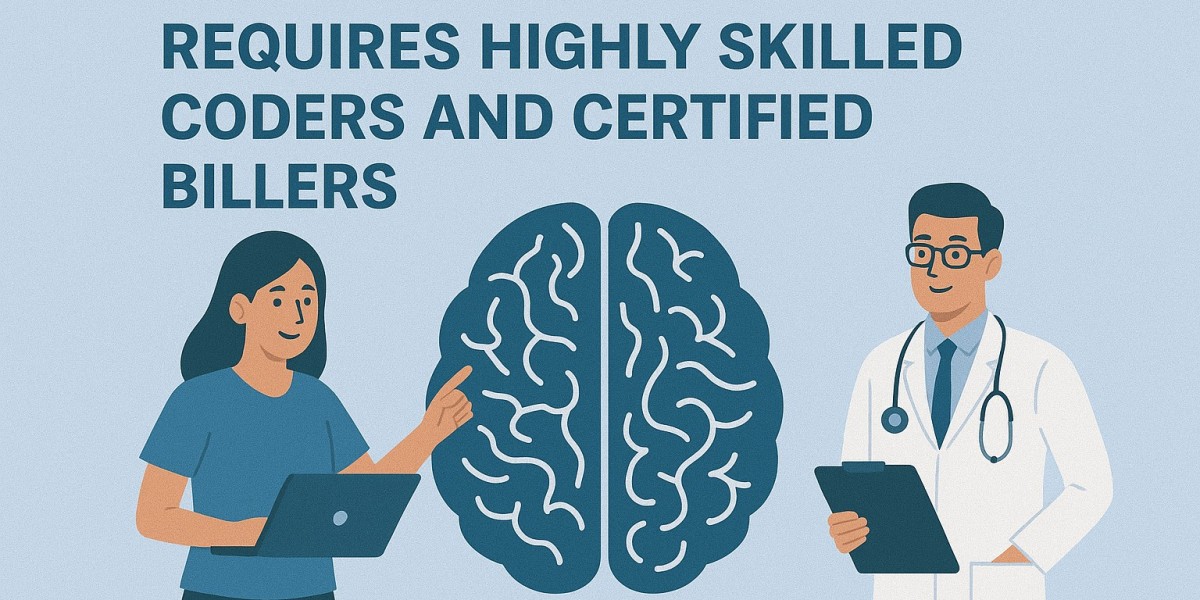Neurosurgery is one of the most complex and high-risk specialties in modern medicine. From intricate brain and spine procedures to advanced diagnostic interventions, neurosurgeons rely on precise clinical documentation and flawless billing processes to ensure proper reimbursement. This is why many practices partner with specialized Neurosurgery Billing Services that understand the unique demands of this specialty. Unlike general medical billing, neurosurgery billing requires a rare blend of clinical knowledge, specialized coding skills, and deep familiarity with payer rules.
Because even a minor coding error can lead to significant revenue leakage or compliance risks, neurosurgery practices need certified billers who can manage the complexity of both surgical and non-surgical care with accuracy and confidence. Below is a detailed look at why neurosurgery billing requires the highest level of expertise and why specialized billing support is essential for maximizing reimbursements.
The Extreme Complexity of Neurosurgical Procedures
Neurosurgery involves high-acuity procedures such as spinal fusions, tumor resections, endovascular treatments, nerve repairs, and cranial surgeries. Each procedure is multilayered, often involving multiple techniques, access points, and operating stages. Coders must understand not only the surgical approach but also the clinical purpose, device usage, and intraoperative imaging.
A single neurosurgical claim may require coding for:
• Primary and secondary surgical procedures
• Multiple add-on codes
• Implants, grafts, and instrumentation
• Laterality
• Approach (e.g., anterior, posterior, interbody)
• Microsurgery and endoscopic techniques
• Intraoperative neuromonitoring
• Postoperative care
General coders often struggle with this level of depth, which is why neurosurgery billing demands an advanced skill set and considerable hands-on experience.
High Denial Rates When Coding Isn’t Precise
Neurosurgery consistently ranks among the medical specialties with the highest denial rates. This is because documentation errors, missing modifiers, and incorrect sequencing can quickly trigger payer audits or claim rejections.
Common reasons neurosurgery claims are denied include:
• Incomplete operative notes
• Missing medical necessity details
• Failure to attach imaging findings
• Incorrect or missing modifiers
• Coding anatomical regions incorrectly
• Under-coding complex procedures
• Over-coding that raises compliance flags
Certified neurosurgery billers understand how to read complex operative reports and translate them into accurate, compliant claims that insurers will accept on the first submission. This dramatically reduces denial rates and accelerates cash flow.
Accurate Modifier Use Is Critical in Neurosurgery
Neurosurgery billing heavily depends on modifier accuracy. Modifiers help clarify procedures in cases involving:
• Bilateral surgeries
• Multiple surgeons or co-surgeons
• Staged procedures
• Repeat procedures
• Professional vs. technical components
• Distinct surgical services
Using the wrong modifier can reduce reimbursements by thousands of dollars or result in claim denials that take months to resolve. Skilled coders know exactly which modifiers apply to neurosurgical procedures and how these choices affect payment.
Understanding Anatomical and Technical Details Is Essential
Neurosurgical codes often require an understanding of detailed anatomy such as spinal segments, vertebral levels, cranial nerves, vascular structures, and neural pathways. This level of precision is not commonly needed in other specialties.
A neurosurgery coder must understand terms like:
• Laminotomy vs. laminectomy
• Discectomy vs. decompression
• TLIF, PLIF, XLIF
• Craniotomy vs. craniectomy
• Neuroendovascular embolization
• Stereotactic procedures
• Spinal instrumentation categories
A coder who isn’t highly trained may misinterpret a surgeon’s note and submit codes that significantly undervalue the work performed or raise audit risks.
Payer Policies for Neurosurgery Are Highly Variable
Unlike routine medical specialties, neurosurgery is subject to strict payer scrutiny because the procedures are high-cost and high-risk. Each insurance company may have different rules for:
• Prior authorizations
• Bundling and unbundling of procedures
• Medical necessity documentation
• Implant and hardware coverage
• Global periods
• Imaging reimbursement
Certified billers specializing in neurosurgery know how to navigate these variations to prevent delays and revenue loss.
Charge Capture Must Be Extremely Detailed
Missed charges are very common in neurosurgery billing. For example, coders may overlook:
• Add-on codes
• Imaging guidance
• Drain placement
• Microsurgical techniques
• Neurostimulator components
• Bone grafts
• Medical devices and hardware
Each overlooked item represents lost revenue. Highly skilled billing teams use structured charge-capture workflows to ensure nothing is missed and every payable service is documented.
Audit Risk Is Higher in Neurosurgery
Because neurosurgery services are expensive and complex, payers frequently flag claims for audits. Having a certified coding and billing team ensures:
• Proper documentation
• Compliance with federal and state regulations
• Correct sequencing of procedures
• Justification of medical necessity
• Accurate reporting of intraoperative techniques
This reduces exposure to penalties, repayment demands, and lengthy investigations.
Specialized Billers Improve Revenue Cycle Performance
Neurosurgery practices that work with specialized billing teams experience measurable improvements across the entire revenue cycle. Benefits include:
• Higher clean-claim rates
• Faster reimbursements
• Stronger A/R follow-up
• Lower denial rates
• More accurate coding
• Better financial predictability
• Fewer compliance issues
This allows neurosurgeons to focus on clinical care instead of administrative challenges.
Expert Billing Support Helps Practices Grow
As neurosurgery practices expand into new service lines such as minimally invasive spine surgery, neuro-oncology, or endovascular treatments, they need billing teams that can adapt quickly. Specialized billers stay informed about industry updates, ensuring uninterrupted revenue as the practice grows.
Additionally, accurate financial data from expert billers helps neurosurgeons make informed decisions about:
• Patient volume
• Staffing
• Equipment investments
• Facility expansion
• Service diversification
Final Thoughts
Neurosurgery is one of the most demanding medical specialties, and the financial side is just as complex as the clinical work. With intricate procedures, strict payer scrutiny, and significant audit risk, neurosurgery billing requires certified billers who understand how to translate clinical detail into accurate claims. Partnering with expert Neurosurgery Billing Services ensures fewer denials, faster payments, and stronger long-term financial stability for practices of all sizes.



